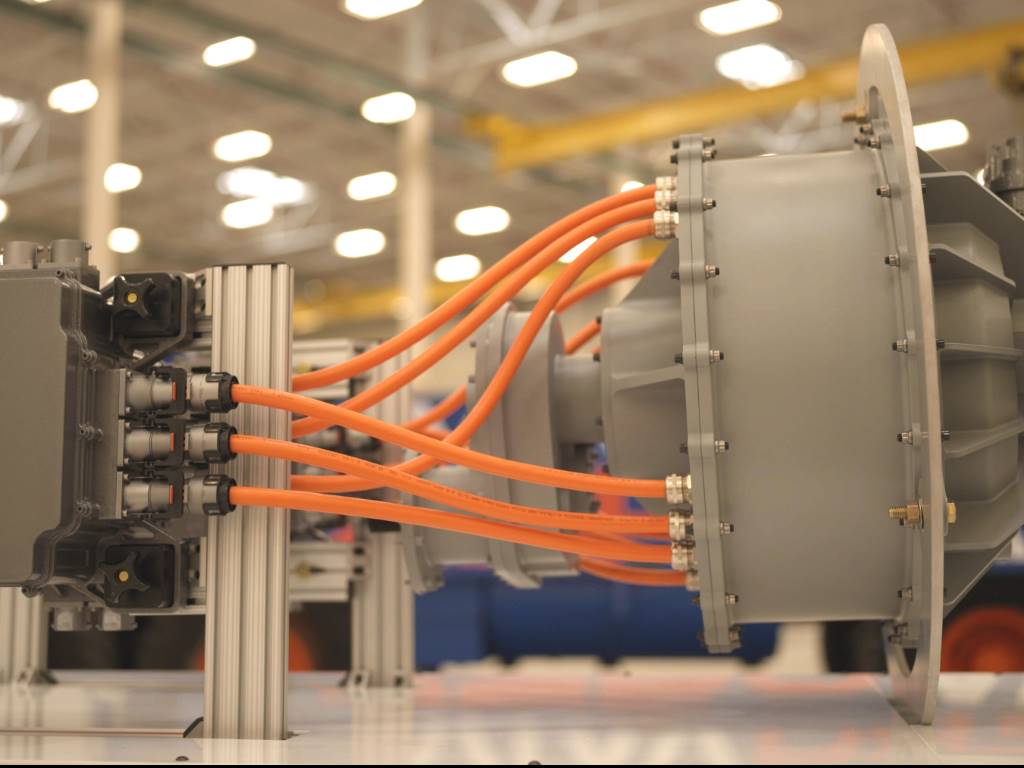Collaboration supports GKN hydrogen aircraft fuel system
New Zealand-based Fabrum, a leader in zero-emissions transition, and British engineering consultancy Filton Systems Engineering (FSE) have joined forces with GKN Aerospace to help shift aviation towards hydrogen flight with end-to-end hydrogen fuel system technology.

This collaboration leverages FSE’s aerospace capability in fuel systems and designing fuel, air, hydraulic, inerting and engine systems, and Fabrum’s cryogenic and fuel tank storage technology and expertise in hydrogen fuel systems.
The announcement coincides with FSE’s upgrade to its existing hot and cold fuel test facility to now offer both gaseous and liquid hydrogen in a world-first commercial test environment in Bristol, which has become a focal point globally for hydrogen flight activity. These test facilities enable aerospace companies to produce and test liquid hydrogen as a fuel for hydrogen test flights, with FSE providing further support towards certification for flight status.
Fabrum developed the ground-based end-to-end liquid hydrogen production solution for the test facility, including hydrogen conditioning, liquefaction and liquid hydrogen storage. Further upgrades are planned, including combining Fabrum’s cryogenic technologies with a membrane-free electrolyser to remove dependence on gaseous hydrogen supply.
At the FSE test facility, a ground-based demonstrator of a 2.4kW liquid hydrogen system has been jointly designed with GKN Aerospace, and built by FSE, under the Innovate UK-funded Safe Flight project. This end-to-end system demonstrates the feasibility of liquid hydrogen as an aircraft fuel source and addresses many of the safety concerns raised by the introduction of such a novel fuel. The project has developed storage and dispensing technologies, optimised purging systems, and integrated fuel tank design with distribution on aircraft (including vaporisation and conditioning) through to supplying a fuel cell with gaseous hydrogen at the required temperature and pressure over a range of electrical loads representative of a typical flight.
Fabrum’s CEO, Dr Ojas Mahapatra, said: “The successful adoption of zero-emission fuels requires both ground-based infrastructure development for liquid hydrogen provisioning at airports and aircraft that will use it. Point-of-use liquid hydrogen production is the most economical short to medium-term solution to enable zero emission flight. We’ve already proven our ground hydrogen fuel solutions for small and medium-scale hydrogen production. Now, with FSE, we’re taking these refuelling solutions to the aviation industry - right through to the onboard fuel cell.”
Ben Richardson, commercial director, Filton Systems Engineering, added: “We’ve combined our world-leading aerospace expertise in fuel system and equipment design and certification with Fabrum’s unique and complementary expertise to achieve significant liquid hydrogen milestones. We looked globally for the best people to help us shift aviation towards a hydrogen future, and Fabrum is an ideal partner as they’re the best at what they do in the world. Together, we’ve already delivered break-through test facilities with ready access to hydrogen on-site and on-demand. We see this as a vital asset to the Aerospace, and other industrial sectors, if hydrogen is going to be developed as an alternate fuel source. There is now a facility in the UK where product development can be performed safely with a continuous supply of liquid hydrogen.
“In addition, US-based NI (previously National Instruments) with expertise from involvement in recent Space programmes, are providing gauging and control hardware and methodologies to solve the challenges associated with the control and instrumentation of such a challenging and relatively unknown fuel.”












